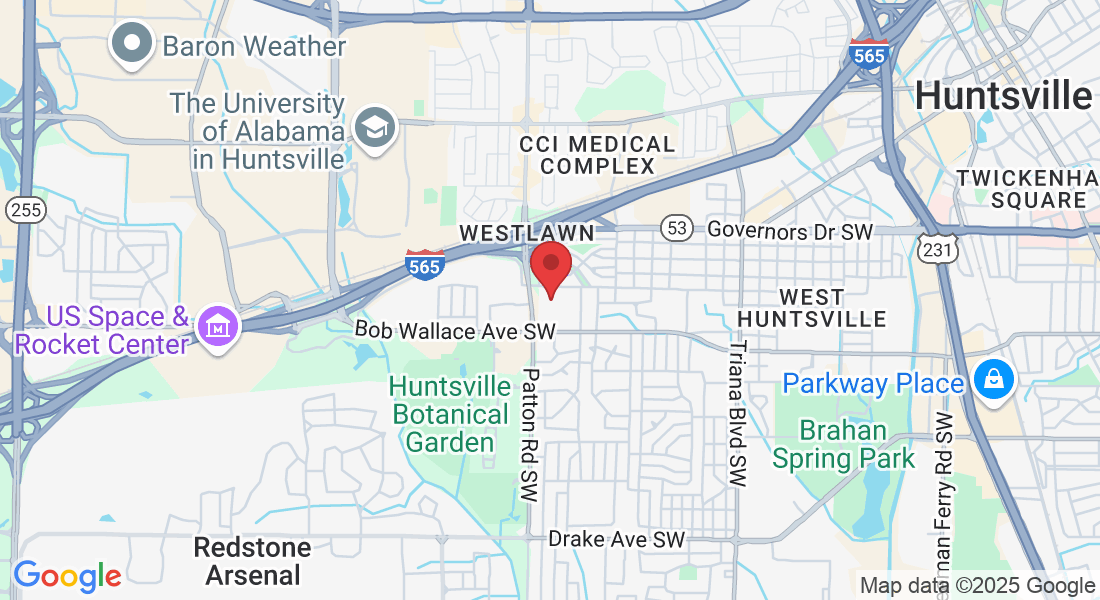
BLOG


From Cotton Gins to Space Exploration - The History of Huntsville, Alabama
From the hum of the cotton gin to the roar of rocket engines, Huntsville has always been a city of innovation.

The Fascinating History of Huntsville, Alabama: From Cotton Fields to the Stars
Huntsville, Alabama, has a story unlike any other city in the South. From its early days as a cotton town to its modern role as a leader in space exploration and technology, Huntsville has continually reinvented itself while holding onto its rich heritage. Whether you're a lifelong resident or a newcomer eager to learn about your new home, this journey through Huntsville’s history will give you a new appreciation for the Rocket City.
The Early Years: A Frontier Settlement Becomes a Thriving Town
Huntsville was founded in 1805 by John Hunt, a pioneer who settled near a freshwater spring that would later become Big Spring Park. The area quickly attracted settlers, and by 1811, it was officially named Twickenham in honor of Alexander Pope’s English hometown. However, due to anti-British sentiment during the War of 1812, the name was soon changed to Huntsville in honor of its founder.
As Alabama’s first incorporated town, Huntsville flourished in the early 19th century. By 1819, it played a pivotal role in state history by hosting the constitutional convention that led to Alabama’s statehood. Cotton was king in these early years, with plantation agriculture driving the economy and shaping the region’s culture.
The Civil War and Reconstruction: A City in Turmoil
During the Civil War, Huntsville became a strategic prize due to its railroad connections. In 1862, Union forces captured the city, holding it for much of the war. Although battles raged around the region, Huntsville itself escaped widespread destruction, preserving many of its historic buildings, some of which still stand today.
After the war, Huntsville struggled through Reconstruction, as the cotton economy waned and the South worked to rebuild. However, the late 19th and early 20th centuries saw new industries take root, including textile mills and manufacturing, which diversified the local economy.
The Space Age: Huntsville’s Rise to Global Fame
The biggest transformation in Huntsville’s history came in the mid-20th century. In 1950, the U.S. Army brought Wernher von Braun and a team of German rocket scientists to nearby Redstone Arsenal. Their work on guided missiles laid the foundation for what would become NASA’s Marshall Space Flight Center.
By the 1960s, Huntsville was at the heart of America’s space program. It was here that the Saturn V rocket, which carried Apollo astronauts to the Moon, was developed. This era earned Huntsville the nickname “Rocket City” and cemented its reputation as a hub for innovation and aerospace engineering.
Huntsville Today: A Thriving Hub for Technology and Culture
Today, Huntsville continues to grow as one of the most dynamic cities in the Southeast. Its economy thrives on aerospace, defense, biotechnology, and advanced manufacturing. The city has been consistently ranked as one of the best places to live in the United States, attracting newcomers from all over the world.
But Huntsville isn’t just about science and technology. The city has a vibrant arts scene, outdoor recreation, and a deep sense of history. From the historic homes of Twickenham and Five Points to the cutting-edge developments at Research Park and MidCity, Huntsville blends the past and future in a way that few places can.
Why Huntsville Stands Out
Huntsville’s history is a testament to its resilience and adaptability. From its humble beginnings as a frontier settlement to its role in putting humans on the Moon, this city has always been forward-thinking. Whether you’re here for work, family, or simply to explore, Huntsville offers a unique blend of Southern charm, historical depth, and futuristic ambition.
So next time you walk through Big Spring Park, tour the U.S. Space & Rocket Center, or visit a local brewery in a revitalized cotton mill, remember—you’re standing in a city that has made history and continues to shape the future. Welcome to Huntsville!
www.huntsvilleexplorer.com | 2025 | PRIVACY POLICY


